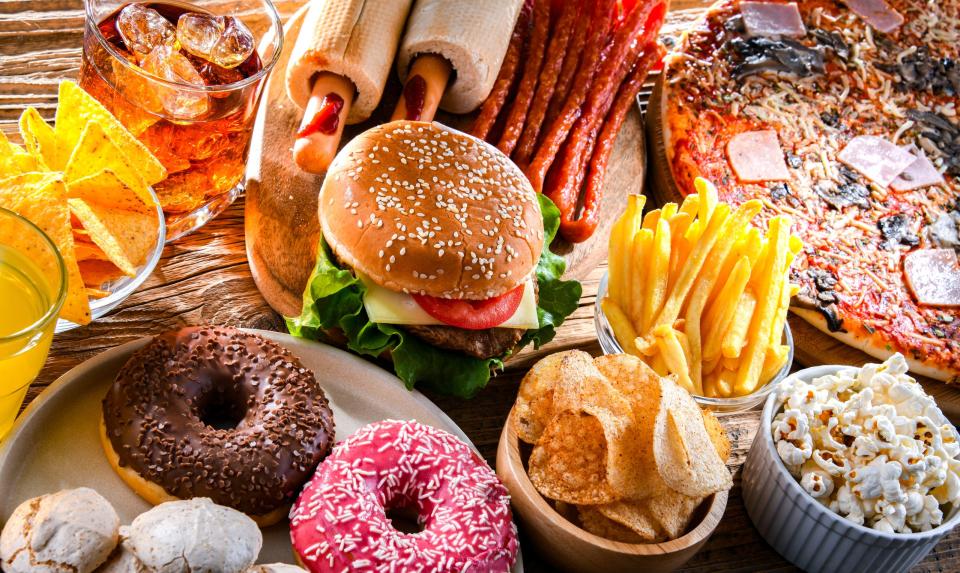Still processing: Evidence piles up against ready-to-eat food | Mark Mahoney
As National Nutrition Month comes to a close we turn to the ongoing role of the significantly detrimental effects due to the large-scale consumption of ultra-processed foods by much of the population in America (not to discount similar level of consumption in a number of other countries).
The shift from unprocessed and minimally processed foods to ultra-processed foods and their subsequent increasing contribution to global dietary patterns in recent years have been attributed to key drivers including behavioral mechanisms, food environments, and commercial influences on food choices.
These factors, combined with the specific features of ultra-processed foods, raise concerns about overall diet quality and the health of populations more broadly.
At a time when Americans consume more than half of their daily calories from ultra-processed foods, there is increasing evidence that eating too many of these foods can make us sick.
Dining out: On the hunt for brunch? Take a look at 14 restaurants in Tallahassee with Easter offerings

Ultra-processed foods
Ultra-processed foods, as defined using the NOVA food classification system (see Reference section for description) encompass a broad range of ready to eat products, including packaged snacks, carbonated soft drinks, instant noodles, and readymade meals.
These products are characterized as industrial formulations primarily composed of chemically modified substances extracted from foods, along with additives to enhance taste, texture, appearance, and durability, with minimal to no inclusion of whole foods.
Ultra-processed foods are abundant in our food supply. Among the most common are highly refined breads, fast food, sugary drinks, cereals, cookies, and other packaged snacks. They are often high in salt, sugar, fat and calories and low in fiber and micro-nutrients such as vitamins.
Comments on a new research study and review
A study published in the British Medical Journalfinds people who consume high amounts of these foods have an increased risk of anxiety, depression, obesity, metabolic syndrome, certain cancers including colorectal cancer and premature death.
The data come from more than 9 million people who participated in dozens of studies, which researchers analyzed as part of the umbrella review.
"Taking the body of literature as a whole, there was consistent evidence that regularly eating higher – compared to lower – amounts of ultra-processed foods was linked to these adverse health outcomes," says study author Dr. Melissa Lane, of Deakin University in Australia.
Easy eggs: Easy cooking tip makes classic deviled eggs the perfect Easter appetizer | Chula Kinga
Some scientific evaluation and regulatory measures underway
A panel of advisors is currently evaluating all the latest diet and nutrition studies as part of a process to update the federal government's Dietary Guidelines It is possible advisors could recommend limits on ultra-processed foods, though it would likely be difficult to get people to follow them.
On the regulatory side, the Food and Drug Administration is moving ahead to finalize a new definition of the term "healthy" – which is expected soon.
The FDA is also moving towards front-of-package labeling that will flag foods that contain high amounts of sodium, sugar and saturated fat. These types of labels "will make it easier for consumers to make healthier choices and better understand the nutritional value of the foods and beverages they buy," says Nancy Brown, CEO of the American Heart Association.
FDA's first Deputy Commissioner for Human Foods says by focusing on [these] three ingredients – sodium, sugar and saturated fat – the agency aims to make people aware of the risks.

A summary and recommendations
This umbrella review study found consistent evidence of a higher risk of adverse health outcomes associated with greater ultra-processed food consumption.
Greater exposure to ultra-processed foods was associated with a higher risk for cardiometabolic syndrome (this syndrome includes a cluster of conditions including abdominal obesity, insulin‐resistant glucose metabolism, dyslipidemia (a metabolic disorder characterized by abnormally high or low amounts of any or all lipids) and increased blood pressure.
These findings support urgent mechanistic research (mechanical processing which does not add chemicals or additional ingredients to the item, so the food does not tend to lose any of its nutritional value) and public health actions that seek to target and minimize ultra-processed food consumption for improved population health.
As National Nutrition month comes to an end, consider the many benefits of consuming more minimally processed foods. Following this course of action in our daily lives certainly provides the real potential for a better quality of life for all.
Consider consulting a Registered Dietitian/Nutritionist — the health professional best suited to this advisory role.

References and Resources
A link to a 4-page reference sheet on the NOVA Food Classification System is available at ecuphysicians.ecu.edu
A link to a study in the British Medical Journal with more than 9 million participants titled, Ultra-processed food exposure and adverse health outcomes: umbrella review of epidemiological meta-analyses: bmj.com
Check out the broadcast (and transcript) on National Public Radio (NPR): From anxiety to cancer, the evidence against ultra-processed food piles up ctpublic.org.
A couple of recommended dietary approaches include the Mediterranean diet and the Dietary Approach to Stop Hypertension (DASH) diet. Links to each follows:
Mediterranean diet: eatingwell.com
DASH diet and eating plan: mayoclinic.org; nhlbi.nih.gov

Mark A. Mahoney, Ph.D. has been a Registered Dietitian/Nutritionist for over 35 years and completed graduate studies in Nutrition & Public Health at Columbia University. He can be reached at marqos69@hotmail.com.
This article originally appeared on Tallahassee Democrat: Evidence and recommendations on consumption of ultra-processed food

